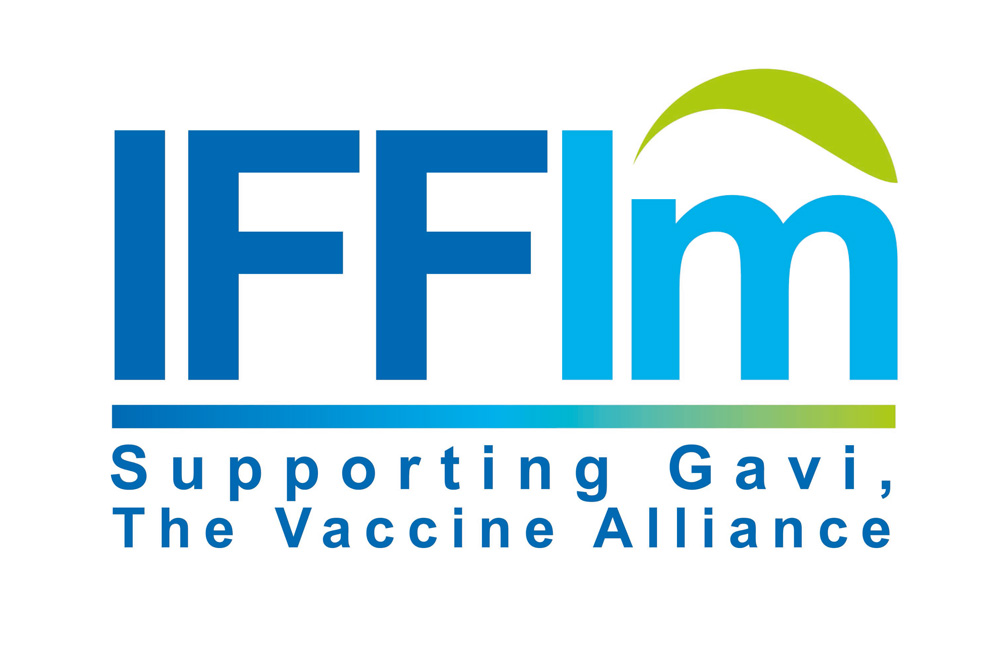The real Diehl
The real Diehl
16 December 2024

Jeff Diehl
An interview with IFFIm Board Member Jeff Diehl.
An interview with IFFIm Board Member Jeff Diehl
Jeff Diehl is Chief Operating and Compliance Officer of Coalition for Green Capital, a US-based national green bank. He joined IFFIm’s Board of Directors in September 2024. In this new interview he shares his thoughts on innovative finance and the future possibilities for IFFIm.
How can you leverage your work with environmental issues to benefit IFFIm and effectively fund Gavi?
For most of my career as a banker, consultant and C-suite executive, I have worked with a variety of organisations whose mission is oriented around significant social impact. Most recently, the focus of those organisations has been related to environmental and climate change issues. However, a common thread has been the mobilisation of private sector capital to accelerate the capacity to deliver on the mission. The challenge, especially in the environmental and climate space, is to demonstrate and communicate to investors the measurable, non-financial impact return associated with their capital commitment. This is very similar to that faced by IFFIm and Gavi.
IFFIm is a “pure play” issuer in the capital markets, meaning its sole focus is funding childhood immunisation. Do you think that is compelling to investors?
The number of investors focused on the impact of their investment continues to grow. However, in a world of competing priorities and the prevalence of ‘greenwashing,’ these investors are increasingly focused on those investments where the line of sight to impact is direct, and that impact must be significant and measurable. Investors are also more comfortable with an identifiable source of repayment. IFFIm’s vaccine bonds deliver on all of these, providing a highly rated, low-risk impact investment supporting global health with a knock-on effect of increased economic growth. Plus IFFIm bonds are liquid and provide a market-based return.
You have experience advising governments. What advice would you give them about investing in today’s market? Are there challenges and opportunities they need to be aware of?
Sovereign, supranational and agency (SSA) investors are concerned with preservation of principal combined with liquidity when investing in financial instruments. In these times of geo-political turmoil and economic volatility, it is usually best to focus on the short to intermediate part of the yield curve with a bias for higher quality assets. However, there is also an opportunity for SSA investors to do more with their investing capital than earn a return. By investing in highly rated, liquid impact securities, such as IFFIm’s vaccine bonds, SSA investors can enhance their “return” by funding organisations that are generating positive social impact with those funds.
How do you think you can best contribute to IFFIm as a Board member?
Over my career, I have built a strong knowledge set of the global capital markets, investor/donor relations, derivatives and foreign exchange operations, investment and cash management, and risk management at both the market and enterprise level. As a global public sector banker, I worked with IFFIm from its onset and managed the team that performed its first independent five-year strategic review of its operations. In addition, I have retained a number of relationships in the SSA world and beyond. It is this knowledge and skill set that I will bring to my role as a Director of IFFIm.
Tell us about an accomplishment you are particularly proud of.
Prior to my current role as Chief Operating and Compliance Officer of Coalition for Green Capital, a US-based national green bank, I was CEO of Rhode Island Infrastructure Bank (RIIB), a quasi-state agency that provides technical assistance to municipalities and invests in water, transportation, clean energy and climate resiliency infrastructure. During my tenure, we were successful in adding the word “resiliency” to the eligible investment authorities contained in RIIB’s enabling legislation. With this authority, RIIB partnered with the Nature Conservancy to work with the State’s municipalities to develop comprehensive strategies to make their communities more resilient to climate change and severe weather events.
RIIB committed its capital to incentivise the communities to commit resources to the programme. These strategies included specific, prioritised projects that addressed each community’s unique exposure to climate change and severe weather events. This prioritised list of projects helped convince the state to issue green bonds to mobilise private sector capital to invest in these climate resiliency projects. The communities were also able to compete more effectively for other sources of capital, especially government grants. Investing $1 today has been shown to avoid $6 of cost in the future when catastrophe strikes, making communities more resilient and this programme worked to accelerated infrastructure investment. RIIB was not directed to set up this programme, rather we saw a need and took the initiative to launch the programme designed to accelerate the process of protecting our communities from climate change and severe weather events.
Share this article
Restricted Access Library
 The material in this Restricted Access Library is intended to be accessed only by persons with residence within the territory of a Member State of the European Union and is not intended to be viewed by any other persons. The material in this Restricted Access Library is provided by IFFIm for information purposes only and the materials contained herein were accurate only as of their respective dates. Certain information in the materials contained herein is not intended to be, and is not, current. IFFIm accepts no obligation to update any material contained herein.
The material in this Restricted Access Library is intended to be accessed only by persons with residence within the territory of a Member State of the European Union and is not intended to be viewed by any other persons. The material in this Restricted Access Library is provided by IFFIm for information purposes only and the materials contained herein were accurate only as of their respective dates. Certain information in the materials contained herein is not intended to be, and is not, current. IFFIm accepts no obligation to update any material contained herein.
Persons with residence outside the territory of a Member State of the European Union who have access to or consult any materials posted in this Restricted Access Library should refrain from any action in respect of the securities referred to in such materials and are otherwise required to comply with all applicable laws and regulations in their country of residence.
By clicking Access restricted content: DYNAMIC-LINK-TEXT I confirm that I have read and understood the foregoing and agree that I will be bound by the restrictions and conditions set forth on this page.
The materials in this Restricted Access Library are for distribution only to persons who are not a "retail client" within the meaning of section 761G of the Corporations Act 2001 of Australia and are also sophisticated investors, professional investors or other investors in respect of whom disclosure is not required under Part 6D.2 of the Corporations Act 2001 of Australia and, in all cases, in such circumstances as may be permitted by applicable law in any jurisdiction in which an investor may be located.
The materials in this Restricted Access Library and any documents linked from it are not for access or distribution in any jurisdiction where such access or distribution would be illegal. All of the securities referred to in this Restricted Access Library and in the linked documents have been sold and delivered. The information contained herein and therein does not constitute an offer for sale in the United States or in any other country. The securities described herein and therein have not been, and will not be, registered under the U.S. Securities Act of 1933, as amended (the "Securities Act"), and may not be offered or sold in the United States except pursuant to an exemption from, or in a transaction not subject to, the registration requirements of the Securities Act and in compliance with any applicable state securities laws.
Each person accessing the Restricted Access Library confirms that they are a person who is entitled to do so under all applicable laws, regulations and directives in all applicable jurisdictions. Neither IFFIm nor any of their directors, employees, agents or advisers accepts any liability whatsoever for any loss (including, without limitation, any liability arising from any fault or negligence on the part of IFFIm or its respective directors, employees, agents or advisers) arising from access to Restricted Access Library by any person not entitled to do so.
"Relief" for mothers in Bayelsa state as malaria vaccine makes waves
07 November 2025
